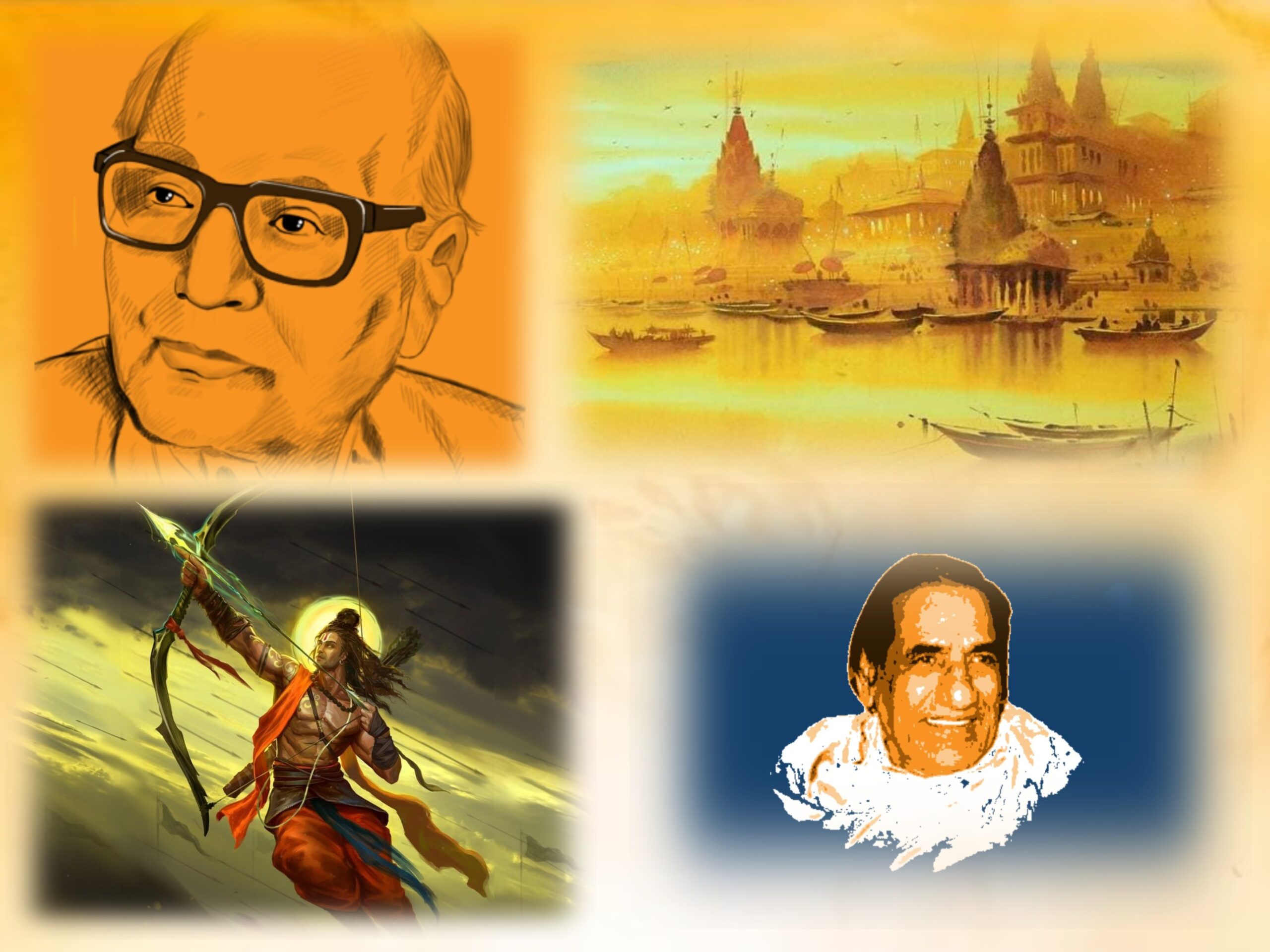- Visitor:24
- Published on:
Inadequacy of the Intellect – Wisdom of the Upanishads
In this brief excerpt, Will Durant explains the importance of Upanishads and how they tell us about the inadequacy of the intellect. To our own day the Upanishads have remained to India what the New Testament has been to Christendom- a noble creed occasionally practiced and generally revered. Even in Europe and America this wistful theosophy has won millions upon millions of followers, from lonely women and tired men to Schopenhauer and Emerson. Who would have thought that the great American philosopher of individualism would give perfect expression to the Hindu conviction that individuality is a delusion?

The first lesson that the sages of the Upanishads teach their selected pupils is the inadequacy of the intellect. How can this feeble brain, that aches at a little calculus, ever hope to understand the complex immensity of which it is so transitory a fragment? Not that the intellect is useless; it has its modest place, and serves us well when it deals with relations and things; but how it falters before the eternal, the infinite, or the elementally real!
In the presence of that silent reality which supports all appearances, and wells up in all consciousness, we need some other organ of perception and understanding than these senses and this reason. “Not by learning is the Atman (or Soul of the World) attained, not by genius and much knowledge of books… Let a Brahman renounce learning and become as a child… Let him not seek after many words, for that is mere weariness of tongue.”

The highest understanding, as Spinoza was to say, is direct perception, immediate insight; it is, as Bergson would say, intuition, the inward seeing of the mind that has deliberately closed, as far as it can, the portals of external sense. “The self-evident Brahman pierced the openings of the senses so that they turned outwards; therefore, man looks outward, not inward into himself; some wise man, however, with his eyes closed and wishing for immortality, saw the self behind.”
If, on looking inward, a man finds nothing at all, that may only prove the accuracy of his introspection; for no man need expect to find the eternal in himself if he is lost in the ephemeral and particular. Before that inner reality can be felt one has to wash away from himself all evil doing and thinking, all turbulence of body and soul. For a fortnight one must fast, drinking only water; then the mind, so to speak, is starved into tranquility and silence, the senses are cleansed and stilled, the spirit is left at peace to feel itself and that great ocean of soul of which it is a part; at last the individual ceases to be, and Unity and Reality appear. For it is not the individual self which the seer sees in this pure inward seeing; that individual self is but a series of brain or mental states, it is merely the body seen from within. What the seeker seeks is Atman, the Self of all selves, the Soul of all souls, the immaterial, formless Absolute in which we bathe ourselves when we forget ourselves.
This, then, is the first step in the Secret Doctrine: that the essence of our own self is not the body, or the mind, or the individual ego, but the silent and formless depth of being within us, Atman. The second step is Brahman, the one pervading, neuter, impersonal, all-embracing, underlying, intangible essence of the world, the “Real of the Real,” “the unborn Soul, un-decaying, undying, the Soul of all Things as Atman is the Soul of all Souls; the one force that stands behind, beneath and above all forces and all gods.
Then Vidagda Sakayla questioned him. “How many gods are there, Yajnavalkya?
He answered, … “As many as are mentioned in the Hymn to All the Gods, namely, three hundred and three, and three thousand and three.
“Yes, but just how many gods are there, Yajnavalkya?” “Thirty-three.”
“Yes, but just how many gods are there, Yajnavalkya?” “Six.”
“Yes, but just how many gods are there, Yajnavalkya?” “Two.”
“Yes, but just how many gods are there, Yajnavalkya?” “One and a half.”
“Yes, but just how many gods are there, Yajnavalkya?” “One.”
The third step is the most important of all: Atman and Brahman are one. The (non-individual) soul or force within us is identical with the impersonal Soul of the World. The Upanishads burn this doctrine into the pupil’s mind with untiring, tiring repetition. Behind all forms and veils the subjective and the objective are one; we, in our de-individualized reality, and God as the essence of all things, are one. A teacher expresses it in a famous parable:
“Bring hither a fig from there.”
“Here it is, Sir.”
“Divide it.”
“It is divided, Sir.”
“What do you see there?”
“These rather fine seeds, Sir.”
“Of these please divide one.”
“It is divided, Sir.”
“What do you see there?”
“Nothing at all, Sir.”
“Verily, my dear one, that finest essence which you do not perceive-verily from that finest essence this great tree thus arises. Believe me, my dear one, that which is the finest essence-this whole world has that as its soul. That is Reality. That is Atman. Tat tvam asi-that art thou, Shwetaketu.”
“Do you, Sir, cause me to understand even more.”
“So be it, my dear one.”

This almost Hegelian dialectic of Atman, Brahman and their synthesis is the essence of the Upanishads. Many other lessons are taught here, but they are subordinate. We find already, in these discourses, the belief in transmigration, and the longing for release (Moksha) from this heavy chain of reincarnations.
Janaka, King of the Videhas, begs Yajnavalkya to tell him how rebirth can be avoided. Yajnavalkya answers by expounding Yoga: through the ascetic elimination of all personal desires one may cease to be an individual fragment, unite himself in supreme bliss with the Soul of the WorId, and so escape rebirth. Whereupon the king, metaphysically overcome, says: “I will give you, noble Sir, the Videhas, and myself also to be your slave. It is an abstruse heaven, however, that Yajnavalkya promises the devotee, for in it there will be no individual consciousness, there will only be absorption into Being, the reunion of the temporarily separated part with the Whole. “As flowing rivers disappear in the sea, losing their name and form, thus a wise man, freed from name and form, goes to the divine person who is beyond all.
Such a theory of life and death will not please Western man, whose religion is as permeated with individualism as are his political and economic institutions. But it has satisfied the philosophical Hindu mind with astonishing continuity. We shall find this philosophy of the Upanishads-this monistic theology, this mystic and impersonal immortality-dominating Hindu thought from Buddha to Gandhi, from Yajnavalkya to Tagore.
To our own day the Upanishads have remained to India what the New Testament has been to Christendom- a noble creed occasionally practiced and generally revered. Even in Europe and America this wistful theosophy has won millions upon millions of followers, from lonely women and tired men to Schopenhauer and Emerson. Who would have thought that the great American philosopher of individualism would give perfect expression to the Hindu conviction that individuality is a delusion?
Brahma
If the red slayer thinks he slays,
Or if the slain thinks he is slain,
They know not well the subtle ways
I keep, and pass, and turn again.
Far or forgot to me is near;
Shadow and sunlight are the same;
The vanished gods to me appear;
And one to me are shame and fame.
They reckon ill who leave me out;
When me they fly I am the wings;
I am the doubter and the doubt”
And I the hymn the Brahman sings.
- 12 min read
- 0
- 0










